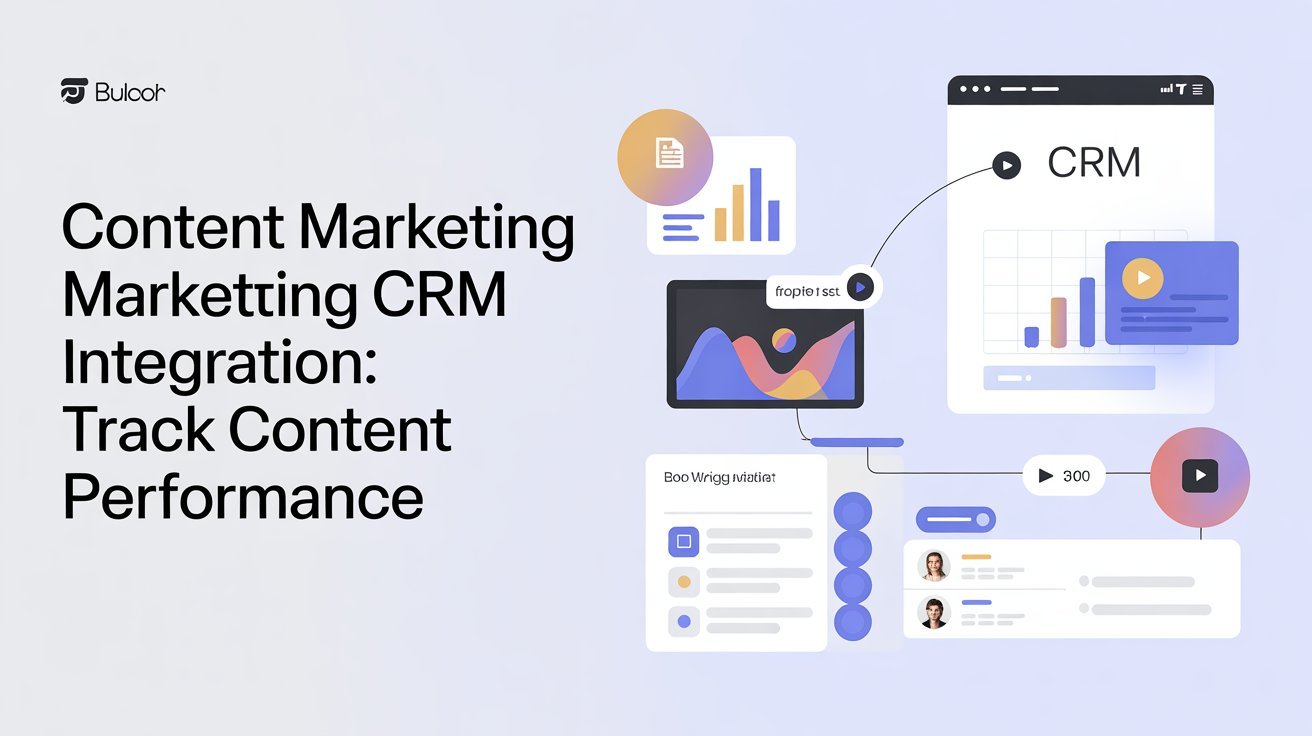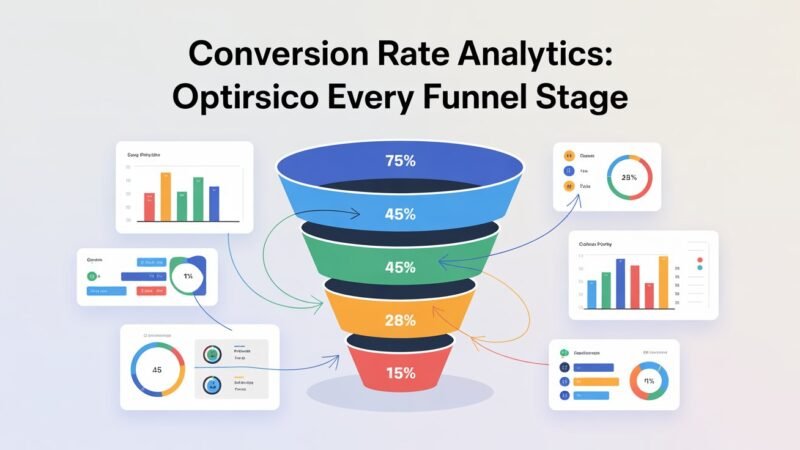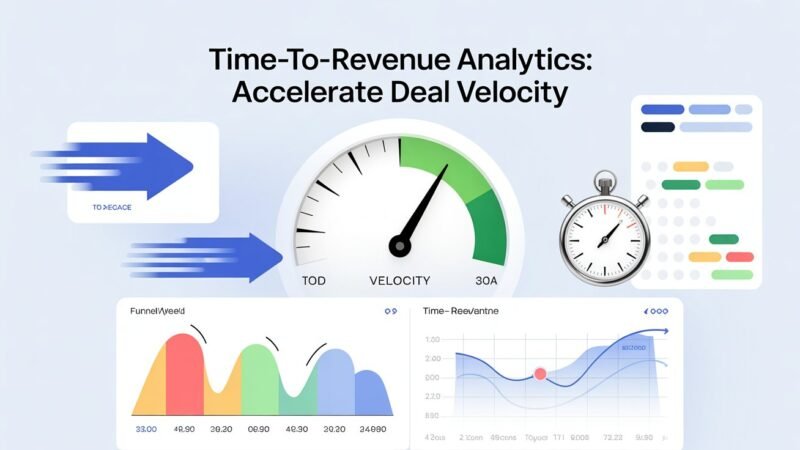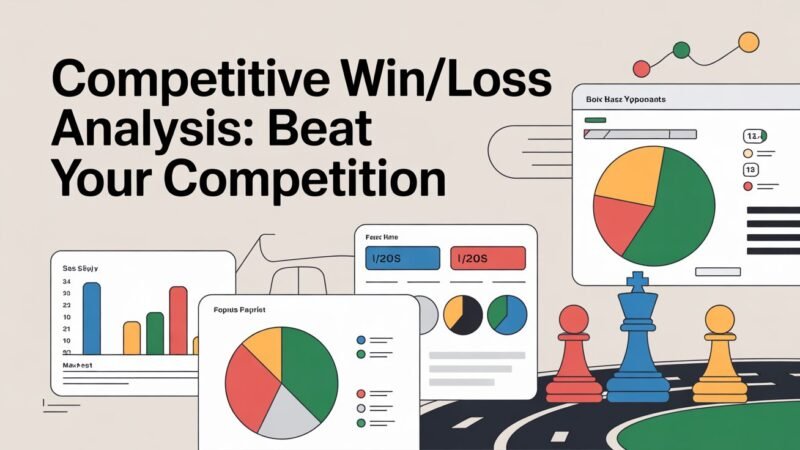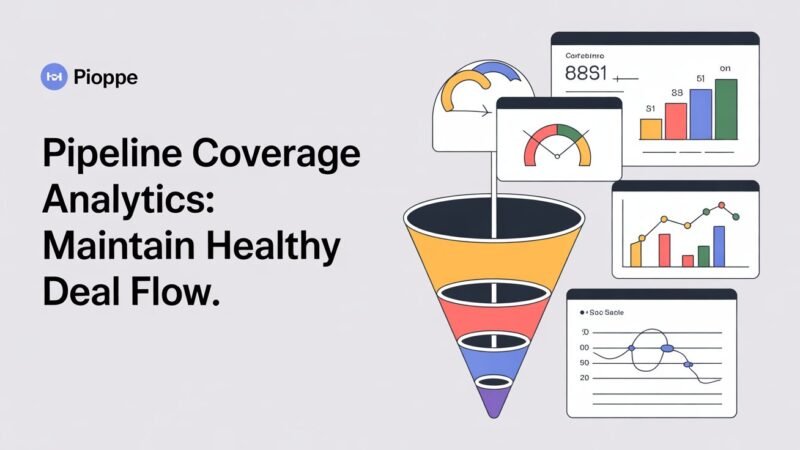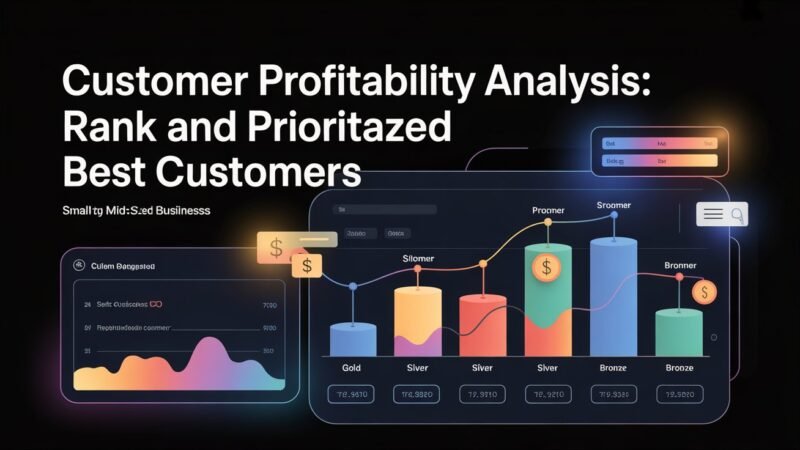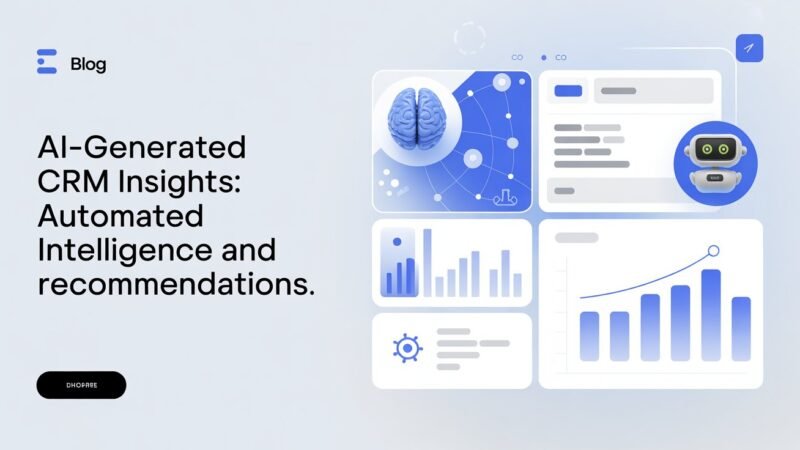Integrating content marketing with your CRM system is essential for effectively tracking performance. This connection helps you gather valuable insights by streamlining audience data, boosting your engagement efforts, and optimizing your content strategy. You’ll monitor key metrics like conversion rates and customer interactions, allowing you to refine your approach based on actionable insights. By leveraging the right tools, you can transform your marketing efforts. Discover more about enhancing your content strategies and CRM integration benefits.
Table of Contents
Key Takeaways
- Integrating CRM with content marketing tools streamlines data flow, enabling efficient tracking of content performance and audience engagement metrics.
- Use engagement metrics like page views and social media shares to evaluate content effectiveness and reach within your target audience.
- Monitor conversion rates through your CRM to assess how well content drives leads and sales, optimizing future content strategies.
- Employ audience segmentation to tailor content for specific groups, enhancing engagement and improving understanding of customer behavior.
- Leverage platforms like HubSpot and Google Analytics for comprehensive insights, facilitating data-driven decisions and real-time adjustments to content marketing strategies.
Understanding the Importance of Content Marketing
While many businesses focus on immediate sales, understanding the importance of content marketing can set you apart from the competition. A well-crafted content strategy isn’t just about creating engaging posts; it’s about connecting with your audience.
By honing in on audience targeting, you can deliver meaningful content that resonates with potential customers. This approach builds brand loyalty and establishes you as an industry leader.
Instead of pushing for quick sales, you’re nurturing relationships that lead to long-term success. Quality content addresses your audience’s needs, positions your brand effectively, and encourages trust.
Embrace content marketing as a crucial component of your strategy, and watch how it transforms your business landscape, ultimately driving sustainable growth and enhancing customer engagement. Additionally, implementing analytics tools can provide valuable insights into your content’s performance, guiding your strategy for even greater effectiveness.
What Is CRM Integration?
CRM integration is the process of connecting your customer relationship management system with other tools and platforms to streamline operations and improve data flow. This integration enhances CRM functionalities through seamless data synchronization and better user experience. It guarantees system compatibility across different platforms, enabling efficient workflow automation. However, integration challenges may arise, such as limited API connections or mismatched reporting features. Additionally, user experience may be negatively impacted if the integration is not executed properly.
Here’s a quick visual representation of key aspects:
| Aspect | Description | Importance |
|---|---|---|
| CRM Functionalities | Core capabilities of the CRM | Essential for management |
| Data Synchronization | Real-time updates across systems | Keeps data accurate |
| Integration Challenges | Issues faced during integration | Can hinder performance |
Benefits of Integrating Content Marketing With CRM
Integrating content marketing with your CRM can greatly enhance your data insights, giving you a clearer picture of your audience’s preferences. You’ll streamline your marketing efforts, making it easier to deliver the right message at the right time. Plus, improved lead nurturing means you can build stronger relationships and drive conversions more effectively. Additionally, leveraging data-driven decisions can help you optimize your content strategy for maximum impact.
Enhanced Data Insights
When you connect content marketing with your CRM, you access a wealth of data insights that can transform your strategy. By leveraging this integration, you can enhance your understanding of your audience and improve your content’s effectiveness.
Here are some benefits you can expect:
- Data visualization: Easily interpret complex data through visual representations, helping you make informed decisions.
- Audience segmentation: Identify and target specific segments of your audience, ensuring your content resonates with the right people.
- Performance tracking: Measure the success of your content across different channels, allowing for real-time adjustments to your strategy.
These insights empower you to refine your content marketing efforts, ultimately leading to better engagement and higher conversion rates.
Streamlined Marketing Efforts
By connecting your content marketing efforts with a CRM, you streamline your marketing operations, making it easier to manage campaigns and track interactions.
This integration allows you to create streamlined campaigns that reach your audience more effectively. With all your data in one place, you can analyze performance quickly and adjust strategies on the fly.
Efficient communication becomes second nature, as team members can easily access insights and collaborate on content. You’ll spend less time sifting through disparate tools and more time crafting compelling messages.
Plus, having a unified view of your audience helps you tailor content that resonates, driving higher engagement.
Ultimately, this synergy enhances your overall marketing effectiveness, leading to better results.
Improved Lead Nurturing
Improved lead nurturing becomes a reality as you align your content marketing with your CRM. This integration allows you to score leads effectively, ensuring that your team focuses on the most promising prospects.
By utilizing personalized content tailored to each lead’s interests and behaviors, you can nurture relationships that convert.
- Boost engagement by delivering relevant content.
- Optimize your lead scoring process to identify high-quality leads.
- Enhance communication through targeted email campaigns.
With these strategies, you create a seamless experience that guides prospects through the sales funnel.
This not only strengthens your connection with leads but also increases the likelihood of conversion, ultimately driving growth for your business.
How CRM Systems Track Content Performance
CRM systems track content performance by analyzing engagement metrics and customer interactions.
With CRM analytics, you can gain insights into how your audience engages with your content. This includes tracking page views, time spent on articles, and social media shares. By understanding these metrics, you enhance content visibility and determine what resonates with your audience. You’ll also see which pieces drive the most leads, helping you refine your content strategy.
Additionally, monitoring customer interactions allows you to identify patterns in behavior, leading to more personalized marketing efforts. Ultimately, leveraging CRM systems helps you assess content effectiveness, ensuring you create and promote material that engages your audience and supports your business goals. Moreover, using analytics features can streamline your workflow and improve decision-making regarding content strategy.
Key Metrics to Monitor Through CRM
When you’re integrating content marketing with your CRM, it’s essential to keep an eye on key metrics that drive success. Engagement rates, conversion tracking, and content reach all provide valuable insights into how your audience interacts with your content. Additionally, utilizing automation tools can further enhance your ability to monitor these metrics effectively.
Engagement Rates Analysis
To effectively gauge the success of your content marketing efforts, analyzing engagement rates is essential. By leveraging your CRM, you can measure how well your audience interacts with various content formats.
Understanding these metrics will help you refine your engagement strategies and drive better results.
- Click-through Rates: Monitor how many users click on your content links.
- Social Shares: Track how often your content is shared across social media platforms.
- Comments and Feedback: Evaluate the volume and sentiment of audience responses.
Focusing on these key metrics will provide insights into what resonates with your audience, allowing you to adjust your approach.
Conversion Tracking Insights
Analyzing engagement rates gives you a solid understanding of your audience’s interaction with your content, but tracking conversions is where the real impact of your efforts becomes clear.
By monitoring key metrics through your CRM, you can assess how well your content drives actual sales or leads. Focus on conversion funnels to identify where potential customers drop off and optimize those stages accordingly.
Audience segmentation is essential here; it helps you tailor content to specific groups, enhancing the likelihood of conversion. Keep an eye on metrics like conversion rates, average deal size, and customer acquisition costs.
These insights won’t only sharpen your content strategy but also maximize your marketing ROI, ensuring every piece of content works harder for you.
Content Reach Metrics
While understanding conversion metrics is essential, tracking content reach metrics offers valuable insights into how effectively your content is being distributed and consumed.
By monitoring these metrics, you can refine your content visibility strategies and enhance audience engagement techniques. Here are key metrics to focus on:
- Impressions: Get a sense of how many times your content has been displayed.
- Shares: Measure how often your audience is sharing your content, indicating its value.
- Click-through Rate (CTR): Assess how many viewers take action after seeing your content.
Utilizing your CRM, you can analyze these metrics in real-time, enabling you to make data-driven decisions that boost your content’s impact and guarantee it reaches the right audience effectively.
Streamlining Workflows With CRM Integration
Integrating your content marketing strategy with a robust CRM system can greatly streamline your workflows, enhancing both efficiency and effectiveness.
With CRM customization, you can tailor your system to fit your unique processes, ensuring that every aspect of your content marketing aligns with your business goals.
Workflow automation allows you to automate repetitive tasks, reducing the time spent on manual data entry and follow-ups. This means you can focus more on creating high-quality content and engaging with your audience.
Plus, by centralizing your efforts in one platform, you’ll improve collaboration across your team.
Ultimately, the integration of CRM into your content marketing not only simplifies your workflows but also boosts your overall productivity.
Enhancing Customer Insights With Data-Driven Decisions
Data-driven decisions can transform how you understand your customers and tailor your content marketing efforts. By leveraging data analytics, you can gain valuable insights into customer behavior, enhancing your decision-making process.
This means you can implement effective audience segmentation and develop personalized marketing strategies that resonate with your audience.
- Utilize trend analysis to stay ahead of market shifts.
- Track performance metrics to evaluate content effectiveness.
- Visualize data to identify gaps in the customer journey.
Incorporating these strategies into your content strategy leads to more targeted campaigns.
As you focus on data visualization, you’ll not only enhance your understanding of customer behavior but also improve engagement and conversions across all touchpoints.
Embrace data-driven insights for impactful marketing!
Tools and Platforms for Effective Integration
To effectively integrate your content marketing efforts with CRM systems, you’ll need the right tools and platforms.
You’ll discover essential integration tools that streamline your processes and popular platforms that can enhance your overall strategy.
Let’s explore these options to find what best suits your needs.
Essential Integration Tools
When it comes to effective content marketing, having the right tools for integration can make all the difference. You need to address integration challenges to guarantee smooth workflows and maximize your content’s performance.
Here are some essential integration tools to take into account:
- Zapier: Automates workflows between your CRM and content platforms, enhancing tool compatibility.
- HubSpot: Combines CRM features with content marketing tools, providing seamless integration and real-time analytics.
- Google Analytics: Tracks content performance and integrates with various platforms for thorough insights.
Using these tools, you can simplify processes, reduce manual tasks, and focus on creating impactful content that resonates with your audience.
Effective integration helps you overcome challenges and drive better results.
Popular Platforms Overview
Several popular platforms stand out for their ability to streamline integration and enhance your content marketing efforts. Tools like HubSpot and Salesforce excel in marketing automation, providing robust performance tracking and analytics tools that help you refine your content strategies.
With effective data management, these platforms tackle integration challenges, ensuring seamless user experiences. You can optimize campaigns and boost customer engagement through their intuitive dashboards.
Additionally, platforms like Marketo and Mailchimp offer specialized features that enhance your marketing approach, focusing on campaign optimization and targeted messaging.
Case Studies: Successful Content Marketing CRM Integration
As companies increasingly recognize the value of integrating content marketing with customer relationship management (CRM) systems, many have successfully transformed their strategies to drive engagement and conversions.
Through case studies analysis, you can see how these companies tackled integration challenges and reaped significant rewards.
- Enhanced customer insights lead to personalized content
- Streamlined workflows boost efficiency and productivity
- Improved tracking metrics enable data-driven decisions
For instance, a tech firm integrated their CRM with their content platform, resulting in a 30% increase in lead conversion rates.
Another company used CRM insights to refine their content strategy, leading to a 25% rise in engagement.
These examples demonstrate that thoughtful integration can yield impressive outcomes for your business.
Future Trends in Content Marketing and CRM Integration
While the landscape of content marketing and CRM integration continues to evolve, several key trends are emerging that could shape the future of how businesses interact with their customers. Future technologies like AI integration will enhance predictive analytics, allowing you to create personalized content that resonates more effectively with your audience. You’ll also see a rise in automation trends, streamlining processes and improving user experience across multi-channel strategies. However, as these advancements occur, maintaining data privacy will be essential.
| Trend | Impact on CRM Integration |
|---|---|
| AI Integration | Enhanced data analysis |
| Predictive Analytics | Improved customer targeting |
| Personalized Content | Higher engagement rates |
| Automation Trends | Increased efficiency |
| Multi-Channel Strategies | Broader audience reach |
Frequently Asked Questions
How Can Small Businesses Benefit From CRM Integration?
Small businesses can boost efficiency through CRM integration by gaining valuable customer insights and leveraging marketing automation. It helps you tailor campaigns, enhance customer relationships, and ultimately drive sales while saving time and resources.
What Common Challenges Arise During CRM Integration?
You’ll face challenges like data migration errors and insufficient user training. These issues can lead to confusion and inefficiencies, so it’s vital to plan thoroughly and provide extensive training to guarantee a smooth integration process.
Are There Specific CRMS Better Suited for Content Marketing?
Yes, content focused CRMs like HubSpot boost marketing efficiency by up to 300%. Combining them with marketing automation tools streamlines your campaigns, enabling you to track engagement and optimize content strategies effectively.
How Often Should Content Performance Be Reviewed in CRM?
You should review content performance metrics at least monthly. This frequency helps you assess content effectiveness and make timely adjustments. Regular analysis guarantees your strategy remains aligned with audience engagement and overall marketing goals.
Can CRM Integration Improve SEO Performance?
Yes, CRM integration can improve SEO performance by providing insights into SEO metrics. It helps you refine your content strategy, aligning your efforts with data-driven decisions that enhance visibility and engagement in search results.
Conclusion
In the world of content marketing, integrating with a CRM isn’t just smart—it’s essential. You’ve learned how it boosts performance tracking and deepens customer insights. Remember, “knowledge is power,” and by harnessing this integration, you empower your strategy to thrive. As you move forward, keep an eye on emerging trends and tools that can elevate your efforts. With the right approach, you’ll not only track success but also create meaningful connections with your audience.

